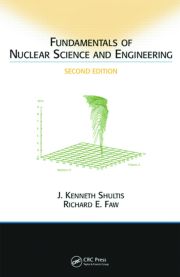Introduction to Nuclear Science and Engineering
CH3792
Responsible Instructor Dr.ir. M.Rohde M.Rohde@tudelft.nl Dr.ir. A.G.Denkova A.G.Denkova@tudelft.nl |
Contact Hours / Week: 8
Education Period: 2
Start Education: 2
Exam Period: Different, to be announced
Course Language: English
Venue: Reactor Institute Delft
Summary
This course is designed as an introduction for Chemical Engineering, Applied Physics and Sustainable Energy Technology students to the broad range of topics that comprise nuclear science. These include; radioactive decay, radiation dosimetry, neutron and positron beams, nuclear reactor physics and designs, nuclear waste disposal, radioactivity in health sciences, and many more.
This Introductory course highlights the Nuclear Science and Engineering specialization; available as a separate certificate that accompanies the University Diploma. For Chemical Engineering students who choose the Nuclear Science and Engineering specialization, this course is compulsory.
The course centers on teaching the fundamental concepts that are necessary to move forward with a more in-depth exploration of these topics. As such, this course draws on faculty and staff from all the sections within the Department of Radiation Science and Technology (RST). Students should complete this course with a greater understanding and appreciation for the relevance of nuclear science and technology in today’s global society.
Course Contents Subjects include:
1. The history of radioactivity
2. Modes of decay / de-excitation
3. Interactions of radiation with matter
4. Radiation dosimetry
5. Applications of research reactors
6. Neutron beams
7. Neutron scattering techniques
8. Positron beams
9. Nuclear reactors
10. Nuclear waste disposal
11. Nuclear safety
12. Nuclear weapons
13. Proliferation / safeguards
14. Health application of nuclear science
15. Medical imaging
16. Radiotracers
17. Prospects for the future
Study Goals:
· Sub-goal (total % for sub-goal) : Weekly exercises(25%)/Exam(50%)/Presentation(25%)
· Has insight into the nature of radiation and radioactivity and its interaction with matter (37%) : 12%/25%/0%
· Understands, in a broad sense, how nuclear science is/will be applied in fields of energy, health, medicine industry and others (38%) : 13%/25%/0%
· Is able to read, understand and present a scientific paper on a nuclear science subject (20%) : 0%/0%/20%
· Is able to collaborate with another student, while preparing the presentation (5%) : 0%/0%/5%
Education Method:
Oral lectures, guided tours and an essay + presentation on a subject related to nuclear science.
Literature and Study Materials:

Lecture slides:
Assessment Written exam, essay + presentation